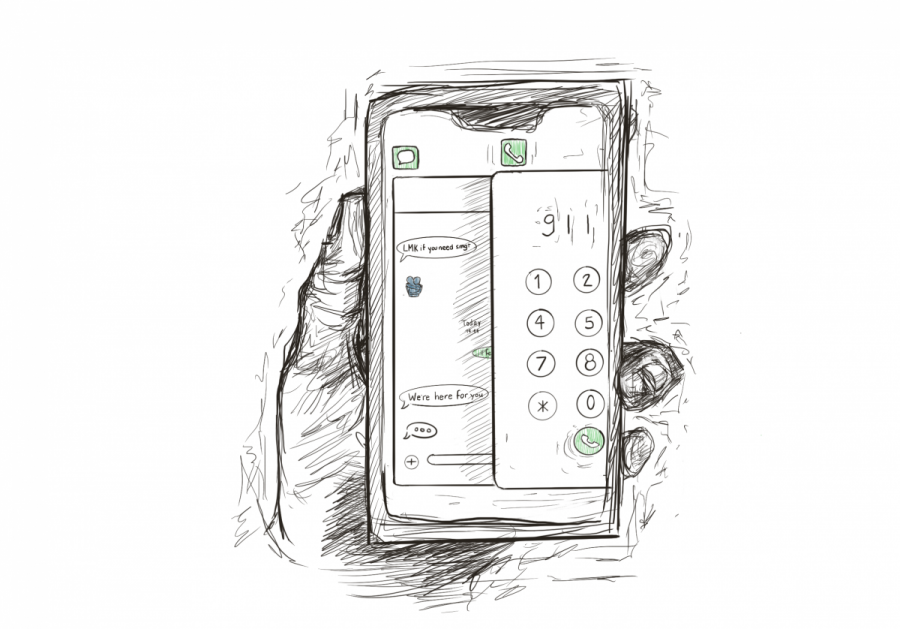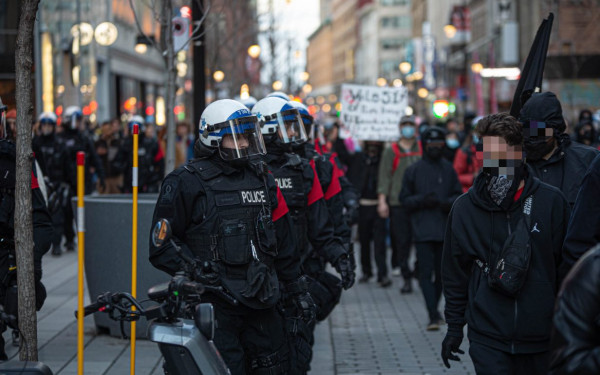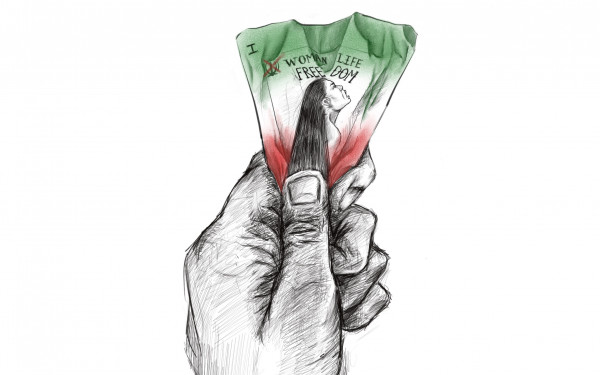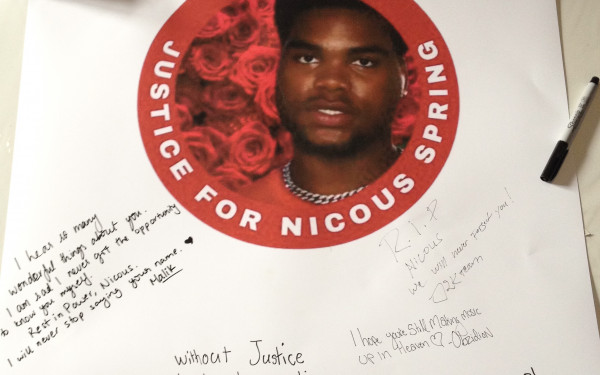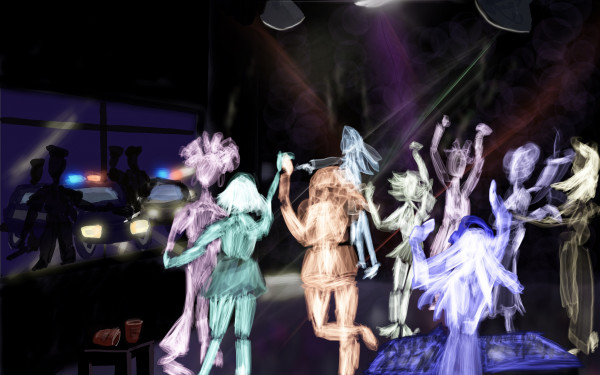Alternatives to the SPVM
The importance of low-stakes alternatives to calling 911
Disclaimer: If someone is dying or in immediate danger, please call 911.
According to its 2022 activity report, the Montreal police responded to over 1.4 million calls. Over 13,000 of these calls were about domestic disturbances. The SPVM’s specialized mental health team, the Équipe de soutien aux urgences psychosociales, has responded to 14,000 calls since 2012.
These numbers pale in comparison to the calls received by non-police entities that correspond to the same issues. From April 1, 2022 to March 31, 2023, SOS, a domestic violence support line, fielded over 50,000 requests for support, and Tracom, a mental health crisis intervention centre, conducted 13,000 interventions.
Based on these statistics, many people are reaching out to these organisations instead of the cops. But why?
Claudine Thibaudeau, SOS’s manager of support and training, said that it may be due to the high stakes associated with taking action through the police.
“For example,” she said, “Let’s say I’m with my partner, and we live together. He hits me, and I press charges. He’s going to be arrested, he might be incarcerated, he might lose his job. That’s gonna impact me.”
Involving police can also be stressful for people without proper legal documentation. The SPVM recommends going to a hospital or local community services centres, known as CLSCs for psychological aid. But as Maria Lorelli, Tracom’s clinical administrative coordinator, pointed out, these services typically require registration with the Régie de l'assurance maladie du Québec.
Tracom clients do not need to be registered, which allows them to help people who may not have proper legal status. They also do not need any form of medical diagnosis to receive aid. “Some of the people we see don’t want to consult, and they don’t want a diagnosis or medication,” Lorelli said.
According to Thibaudeau, another reason for people to avoid calling the SPVM is because pressing charges is not always a safe option for victims. In one such case, Nathalie Piché, a 55-year-old woman, filed domestic violence charges against her spouse with the SPVM in December 2020. After he signed a peace warrant pledging to not bother her, the charges were dropped. Later that year, Piché was killed by the same man.
The care provided by SOS and Tracom also extends beyond what the SPVM can offer. Tracom offers more than interventions, creating safety plans with people in crisis, helping them explore coping tools such as breathing and grounding exercises. SOS’s referral network covers over 4,000 organizations, such as legal aid and shelters.
“A victim of violence will have many different needs…. [Violent partners] use anything in order to create a prison around a person. Our job is to find out, what can we do to help people break those bars?” Thibaudeau said.
She added that SOS puts a lot of work into the prevention of domestic abuse by providing education to people who may not even be aware that they are experiencing violence. “It’s almost like a vaccine,” Thibaudeau said. “If you don't know what subtle kinds of violence look like, you might not recognize it.”
All the people answering the calls at Tracom and SOS have backgrounds in psychology, social work, criminology, psycho-education and similar fields. Once hired, the employees go through a training process (three weeks at SOS, three months at Tracom). In contrast, the SPVM crisis training mainly consists of a mandatory two-day containment and de-escalation training program. “There are a lot of interventions that perhaps could have ended up being in a 911 call, but were diverted to something else,” Lorelli said.
SPVM online resources for domestic violence state that “if you are aware that an attacker is subject to conditions laid down by the Court [...] call 911 immediately,” and that “you should speak up as soon as possible to break the cycle of abuse.”
Thibaudeau pointed out that the most crucial aspect of helping victims of intimate partner violence is to not push them into making decisions. “Violence is someone taking away your choices. To help someone, you have to do the opposite,” she said.
SPVM resources for those experiencing mental crises also remain limited to two options. Their pamphlet on helping a loved one with a disturbed mental state lists the following: Either get the person to go in for a psychological evaluation—no further information is offered on how to do this—or try to get provisional custody over them and force them to have a psychiatric evaluation. This is a distinctly bureaucratic process that entails an applicant to state their case in front of a judge.
“It’s really hard for people to get past the shame involved with not doing well [...] The shame sometimes blocks people from reaching out for help,” said Lorelli. “When family or friends call, [we] say ‘Go see that person. Talk to them, show them care, empathy, and then call us together.’”
If you or someone you know needs support, low-stake options are available.
To reach SOS, call +1 (800) 363-9010
To reach Tracom, call (514) 483-3033
This article originally appeared in Volume 44, Issue 9, published January 30, 2024.

